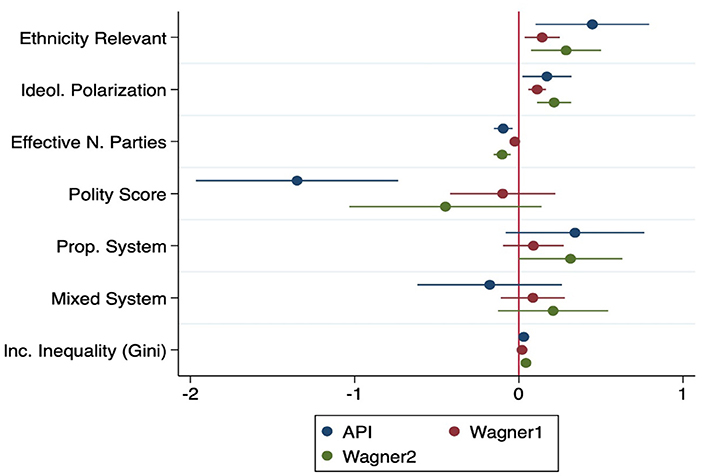
TEAM: | Simon Chauchard
Because the debate over the sources of affective polarization has so far mostly focused on the US case, scholars have rarely considered whether the politicization of ethnic differences—when elections and representative processes happen along ethnic lines—may be associated to affective polarization. Looking at both country-level indicators and aggregating individual-level ones, we show that in countries in which ethnicity is politically relevant, there will be, on average, higher levels of affective polarization. This implies that high levels of affective polarization are more likely to occur in societies in which elections revolve around ethnic differences. We then show that as the share of the population who are members of the “ethnic group in power” increases, there will be, on average, a corresponding fall in affective polarization. Together, these findings reinforce the claim that ideological polarization is not the sole factor of affective polarization (AP), by showing that country-level differences in levels of AP owe, in part, to differences in the degree of ethnicization of politics.

Get updates from PIM Lab straight to your inbox.